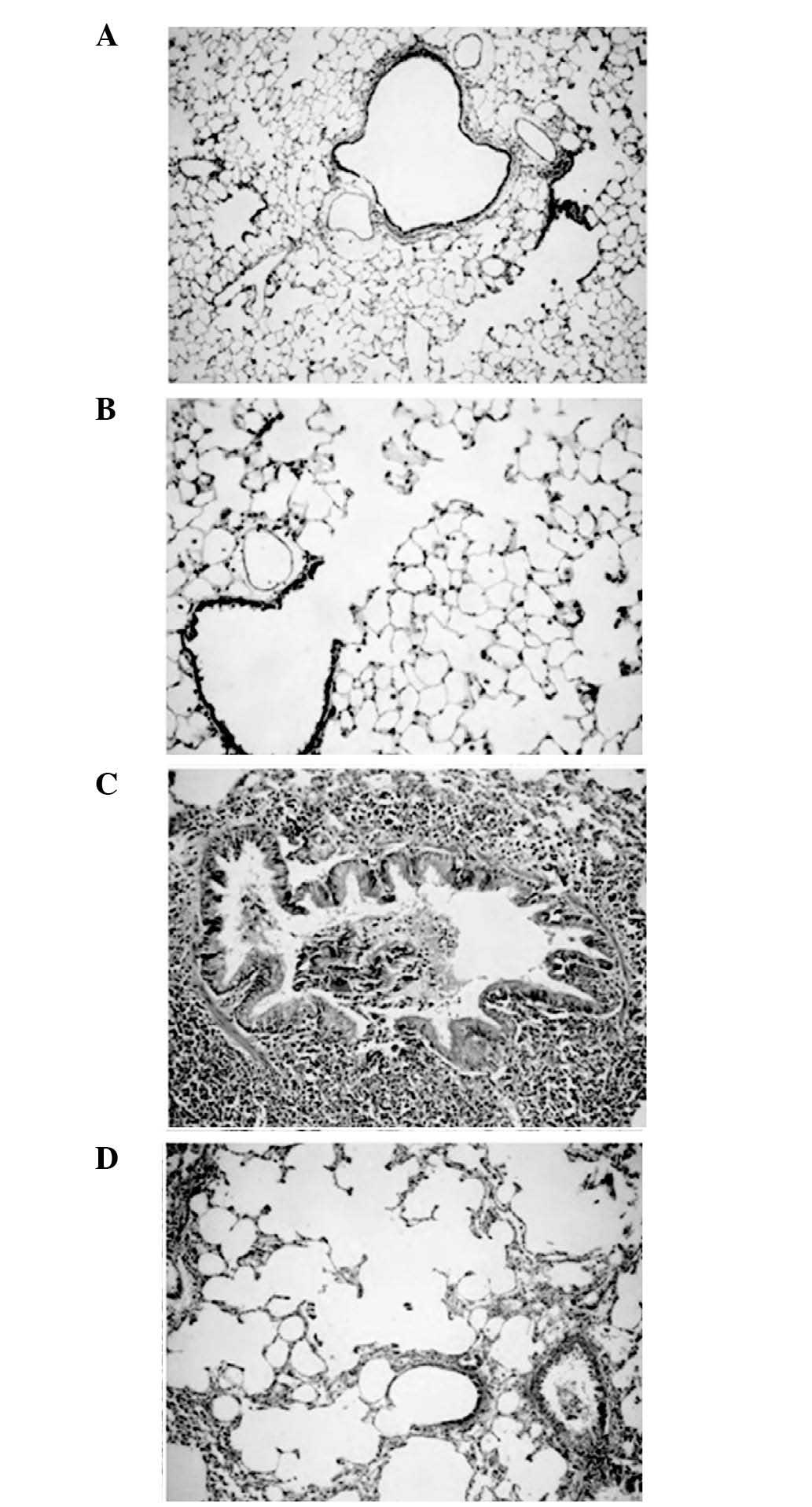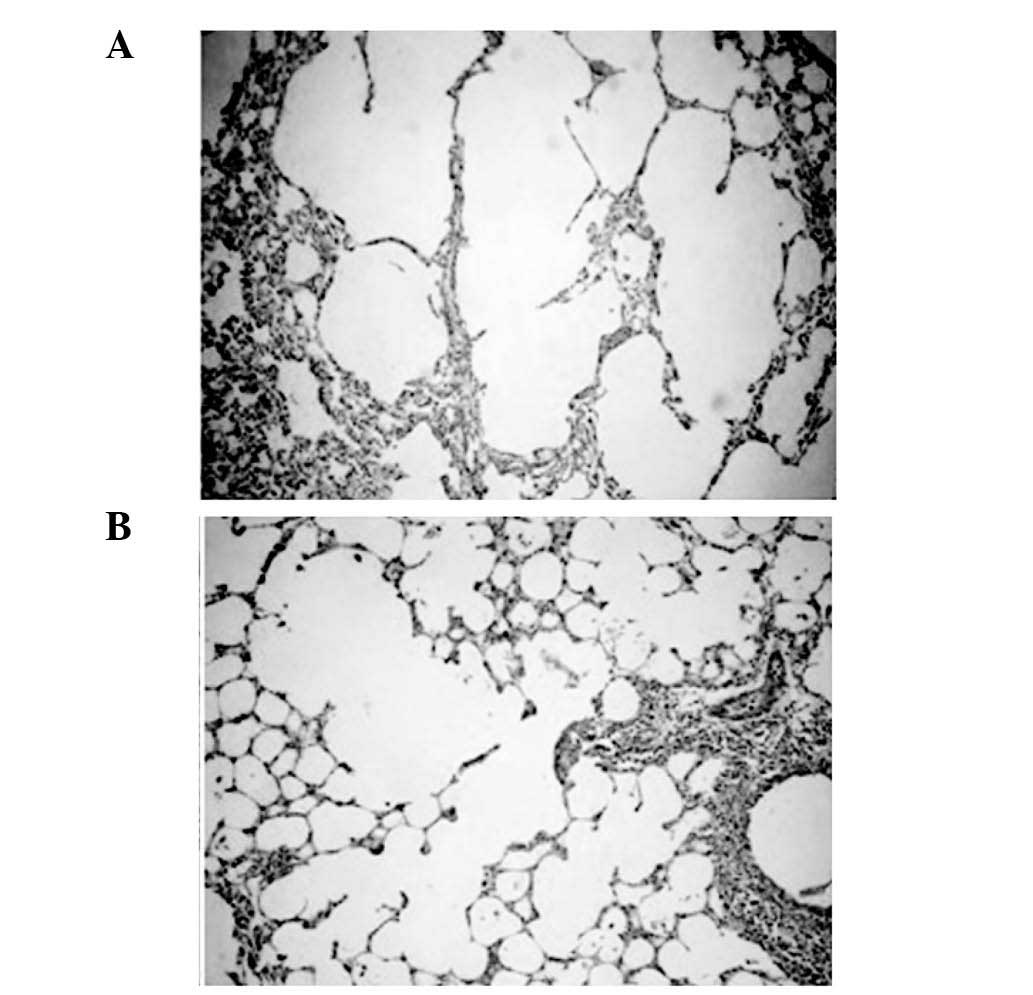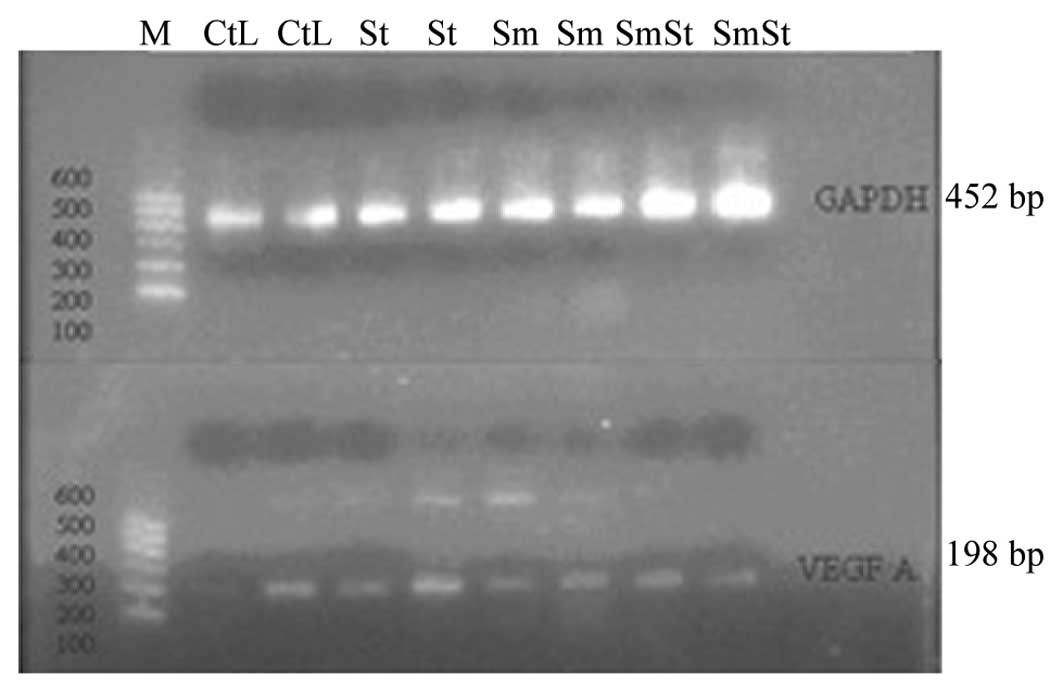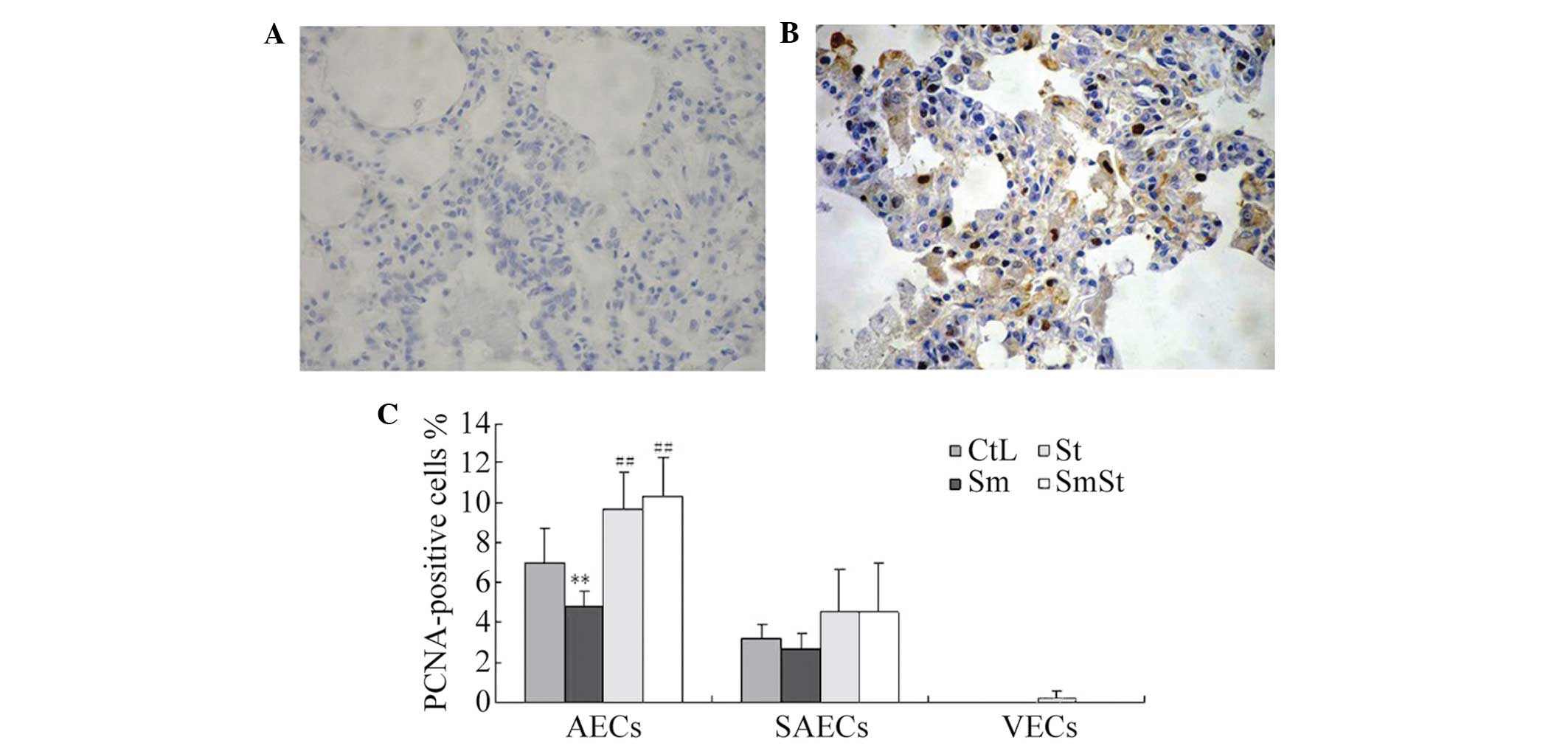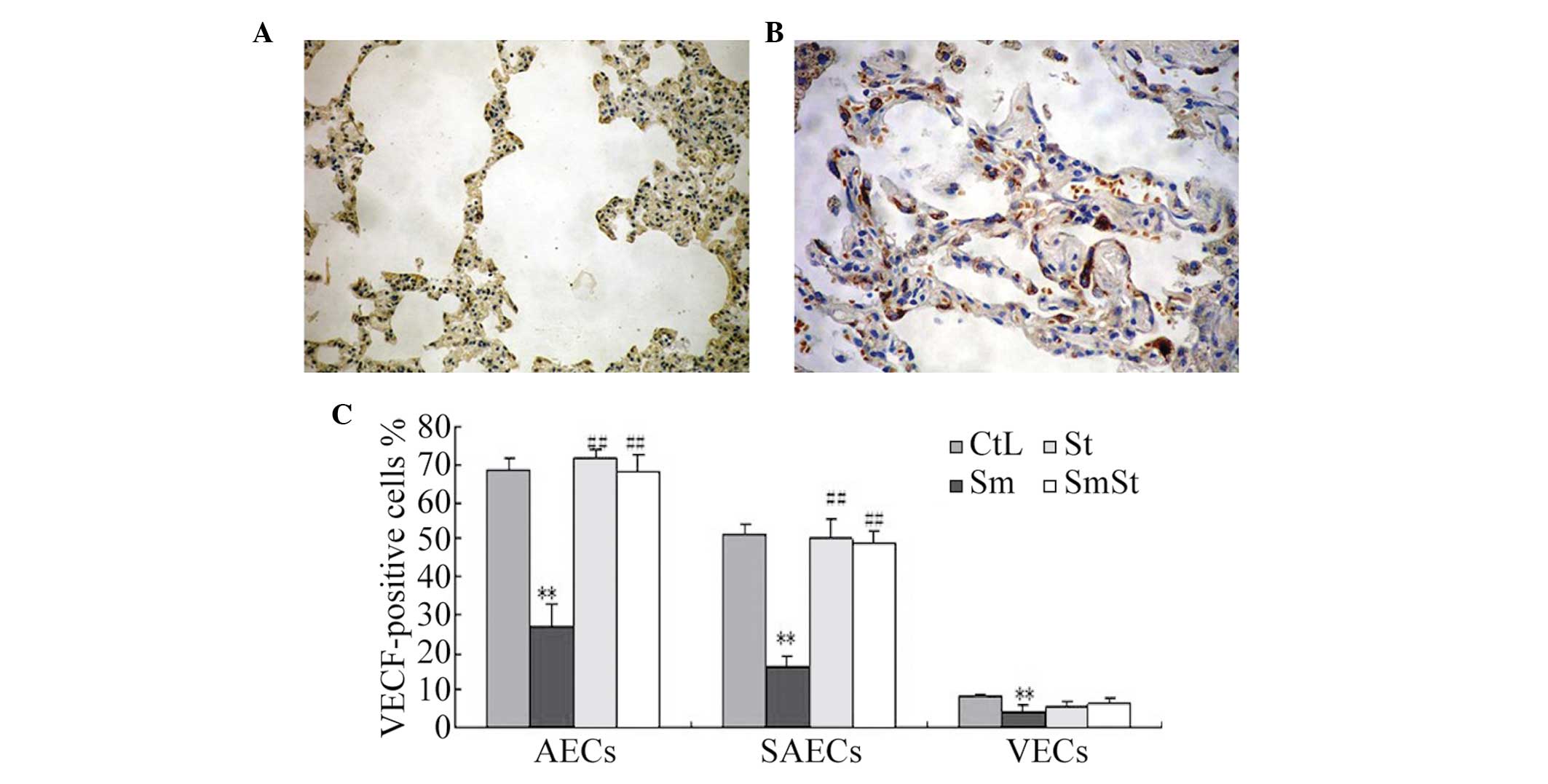|
1
|
World Health Statistics. 2008, Geneva:
World Health Organization. Available from URL: http://www.who.int/whosis/whostat/2008/en/index.html.
|
|
2
|
Zhong N, Wang C, Yao W, Chen P, Kang J,
Huang S, Chen B, Wang C, Ni D, Zhou Y, et al: Prevalence of chronic
obstructive pulmonary disease in China: A large, population-based
survey. Am J Respir Crit Care Med. 176:753–760. 2007. View Article : Google Scholar : PubMed/NCBI
|
|
3
|
Hogg JC, Chu F, Utokaparch S, Woods R,
Elliott WM, Buzatu L, Cherniack RM, Rogers RM, Sciurba FC, Coxson
HO and Paré PD: The nature of small-airway obstruction in chronic
obstructive pulmonary disease. N Engl J Med. 350:2645–2653. 2004.
View Article : Google Scholar : PubMed/NCBI
|
|
4
|
Hogg JC: Pathophysiology of airflow
limitation in chronic obstructive pulmonary disease. Lancet.
364:709–721. 2004. View Article : Google Scholar : PubMed/NCBI
|
|
5
|
Mead J, Turner JM, Macklem PT and Little
JB: Significance of the relationship between lung recoil and
maximum expiratory flow. J Appl Physiol. 229:95–108. 1967.
|
|
6
|
Liebow AA: Pulmonary emphysema with
special reference to vascular changes. Am Rev Respir Dis. 80:67–93.
1959.PubMed/NCBI
|
|
7
|
Kasahara Y, Tuder RM,
Taraseviciene-Stewart L, Le Cras TD, Abman S, Hirth PK,
Waltenberger J and Voelkel NF: Inhibition of VEGF receptors causes
lung cell apoptosis and emphysema. J Clin Invest. 106:1311–1319.
2000. View
Article : Google Scholar : PubMed/NCBI
|
|
8
|
Suzuki M, Betsuyaku T, Nagai K, Fuke S,
Nasuhara Y, Kaga K, Kondo S, Hamamura I, Hata J, Takahashi H and
Nishimura M: Decreased airway expression of vascular endothelial
growth factor in cigarette smoke-induced emphysema in mice and COPD
patients. Inhal Toxicol. 20:349–359. 2008. View Article : Google Scholar : PubMed/NCBI
|
|
9
|
Young RP, Hopkins R and Eaton TE:
Pharmacological actions of statins: Potential utility in COPD. Eur
Respir Rev. 18:222–232. 2009. View Article : Google Scholar
|
|
10
|
Janda S, Park K, FitzGerald JM, Etminan M
and Swiston J: Statins in COPD: A systematic review. Chest.
136:734–743. 2009. View Article : Google Scholar : PubMed/NCBI
|
|
11
|
Liao JK and Laufs U: Pleiotropic effects
of statins. Annu Rev Pharmacol Toxicol. 45:89–118. 2005. View Article : Google Scholar : PubMed/NCBI
|
|
12
|
Veillard NR, Braunersreuther V, Arnaud C,
Burger F, Pelli G, Steffens S and Mach F: Simvastatin modulates
chemokine and chemokine receptor expression by geranylgeranyl
isoprenoid pathway in human endothelial cells and macrophages.
Atherosclerosis. 188:51–58. 2006. View Article : Google Scholar
|
|
13
|
Wolfrum S, Jensen KS and Liao JK:
Endothelium-dependent effects of statins. Arterioscler Thromb Vasc
Biol. 23:729–736. 2003. View Article : Google Scholar : PubMed/NCBI
|
|
14
|
Frick M, Dulak J, Cisowski J, Józkowicz A,
Zwick R, Alber H, Dichtl W, Schwarzacher SP, Pachinger O and
Weidinger F: Statins differentially regulate vascular endothelial
growth factor synthesis in endothelial and vascular smooth muscle
cells. Atherosclerosis. 170:229–236. 2003. View Article : Google Scholar : PubMed/NCBI
|
|
15
|
Taraseviciene-Stewart L, Scerbavicius R,
Choe KH, Cool C, Wood K, Tuder RM, Burns N, Kasper M and Voelkel
NF: Simvastatin causes endothelial cell apoptosis and attenuates
severe pulmonary hypertension. Am J Physiol Lung Cell Mol Physiol.
291:L668–L676. 2006. View Article : Google Scholar : PubMed/NCBI
|
|
16
|
Cho SJ, Kim JS, Kim JM, Lee JY, Jung HC
and Song IS: Simvastatin induces apoptosis in human colon cancer
cells and in tumor xenografts, and attenuates colitis-associated
colon cancer in mice. Int J Cancer. 123:951–957. 2008. View Article : Google Scholar : PubMed/NCBI
|
|
17
|
Punturieri A, Szabo E, Croxton TL, Shapiro
SD and Dubinett SM: Lung cancer and chronic obstructive pulmonary
disease:needs and opportunities for integrated research. J Natl
Cancer Inst. 101:554–559. 2009. View Article : Google Scholar : PubMed/NCBI
|
|
18
|
Ueda K, Jinbo M, Li TS, Yagi T, Suga K and
Hamano K: Computed tomography-diagnosed emphysema, not airway
obstruction, is associated with the prognostic outcome of
early-stage lung cancer. Clin Cancer Res. 12:6730–6736. 2006.
View Article : Google Scholar : PubMed/NCBI
|
|
19
|
Xu J, Liu X, Chen J, Zacharek A, Cui X,
Savant-Bhonsale S, Liu Z and Chopp M: Simvastatin enhances bone
marrow stromal cell differentiation into endothelial cells via
notch signaling pathway. Am J Physiol Cell Physiol. 296:C535–C543.
2009. View Article : Google Scholar :
|
|
20
|
Architectural and technical code for
laboratory animal facility (GB50447-2008): National Standard of the
People's Republic of China. China Architecture & Building
Press; Beijing, China: 2008
|
|
21
|
Lee JH, Lee DS, Kim EK, Choe KH, Oh YM,
Shim TS, Kim SE, Lee YS and Lee SD: Simvastatin inhibits cigarette
smoking-induced emphysema and pulmonary hypertension in rat lungs.
Am J Respir Crit Care Med. 172:987–993. 2005. View Article : Google Scholar : PubMed/NCBI
|
|
22
|
Zhang HY, Pang BS, Niu SJ, Ma L, Xin P and
Weng XZ: Expression of matrix metalproteinases in lung tissue and
levels of some cytokines in bronchoalveolar lavage fluid in the
obstructive emphysema rat models. Chin J Inter Med. 42:181–185.
2003.
|
|
23
|
Vernooy HJ, Dentener MA, van Suylen RJ,
Buurman WA and Wouters EF: Long-term intratracheal
lipopolysaccharide exposure in mice results in chronic lung
inflammation and persisient pathology. Am J Respir Cell Mol Biol.
26:152–159. 2002. View Article : Google Scholar
|
|
24
|
Kasagi S, Seyama K, Mori H, Souma S, Sato
T, Akiyoshi T, Suganuma H and Fukuchi Y: Tomato juice prevents
senescence-accelerated mouse P1 strain from developing emphysema
induced by chronic exposure to tobacco smoke. Am J Physiol Lung
Cell Mol Physiol. 290:L396–L404. 2006. View Article : Google Scholar
|
|
25
|
Takahashi S, Nakamura H, Seki M, Shiraishi
Y, Yamamoto M, Furuuchi M, et al: Reversal of elastase –induced
pulmonary emphysema and promotion of alveolar epithelial cell
proliferation by simvastatin in mice. Am J Physiol Lung Cell Mol
Physiol. 294:L882–L890. 2008. View Article : Google Scholar : PubMed/NCBI
|
|
26
|
Patel BJ, Marchetti N, Kim V, Gaughan JP
and Criner GJ: Airway wall thickness correlates with dynamic
hyperinflation in severe COPD. Proc Am Thorac Soc (abstract).
3:A7122006.
|
|
27
|
Wright JL, Cosio M and Churg A: Animal
models of chronic obstructive pulmonary disease. Am J Physiol Lung
Cell Mol Physiol. 295:L1–L15. 2008. View Article : Google Scholar : PubMed/NCBI
|
|
28
|
Wright JL: The importance of
ultramicroscopic emphysema in cigarette smoke-induced lung disease.
Lung. 179:71–81. 2001. View Article : Google Scholar : PubMed/NCBI
|
|
29
|
Murphy DM, Forrest IA, Corris PA, Johnson
GE, Small T, Jones D, Fisher AJ, Egan JJ, Cawston TE, Ward C and
Lordan JL: Simvastatin attenuates release of neutrophilic and
remodeling factors from primary bronchial epithelial cells derived
from stable lung transplant recipients. Am J Physiol Lung Cell Mol
Physiol. 294:L592–L599. 2008. View Article : Google Scholar : PubMed/NCBI
|
|
30
|
Ou XM, Wen FQ, Uhal BD, Feng YL, Huang XY,
Wang T, Wang K, Liu DS, Wang X and Chen L: Simvastatin attenuates
experimental small airway remodelling in rats. Respirology.
14:734–745. 2009. View Article : Google Scholar : PubMed/NCBI
|
|
31
|
Davis BB, Zeki AA, Bratt JM, Wang L,
Filosto S, Walby WF, Kenyon NJ, Goldkorn T, Schelegle ES and
Pinkerton KE: Simvastatin inhibits smoke-induced airway epithelial
injury: Implications for COPD therapy. Eur Respir J. 42:350–361.
2013. View Article : Google Scholar
|
|
32
|
Takeda N, Kondo M, Ito S, Ito Y, Shimokata
K and Kume H: Role of RhoA inactivation in reduced cell
proliferation of human airway smooth muscle by simvastatin. Am J
Respir Cell Mol Biol. 35:722–729. 2006. View Article : Google Scholar : PubMed/NCBI
|
|
33
|
Kaner RJ, Ladetto JV, Singh R, Fukuda N,
Matthay MA and Crystal RG: Lung overexpression of the vascular
endothelial growth factor gene induces pulmonary edema. Am J Respir
Cell Mol Biol. 22:657–664. 2000. View Article : Google Scholar : PubMed/NCBI
|
|
34
|
Marwick JA, Stevenson CS, Giddings J,
MacNee W, Butler K, Rahman I and Kirkham PA: Cigarette smoke
disrupts VEGF165-VEGFR-2 receptor signaling complex in rat lungs
and patients with COPD: Morphological impact of VEGFR-2 inhibition.
Am J Physiol Lung Cell Mol Physiol. 290:L897–L908. 2006. View Article : Google Scholar
|
|
35
|
Bayorh MA, Ganafa AA, Eatman D, Walton M
and Feuerstein GZ: Simvastatin and losartan enhance nitric oxide
and reduce oxidative stress in salt-induced hypertension. Am J
Hypertens. 18:1496–1502. 2005. View Article : Google Scholar : PubMed/NCBI
|
|
36
|
Asahara T, Takahashi T, Masuda H, Kalka C,
Chen D, Iwaguro H, Inai Y, Silver M and Isner JM: VEGF contributes
to postnatal neovascularization by mobilizing bone marrow-derived
endothelial progenitor cells. EMBO J. 18:3964–3972. 1999.
View Article : Google Scholar : PubMed/NCBI
|
|
37
|
Brown KR, England KM, Goss KL, Snyder JM
and Acarregui MJ: VEGF induces airway epithelial cell proliferation
in human fetal lung in vitro. Am J Physiol Lung CellMol Physiol.
281:L1001–L1010. 2001.
|















